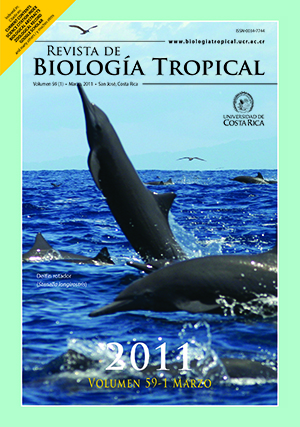Abstract
Cedrela odorata (Meliaceae) is considered as one of the most valuable forest tree in the tropics. Clonal propagation of this species provide an alternative method to propagate superior genotypes, being the production of good quality adventitious roots one of the most important steps in micropropagation techniques. The sequence of anatomical changes that takes place during the formation of adventitious roots in shoots of Cedrela odorata cultured in vitro is described in this study. Eigth-week-old shoots, from multiplication cultures, were rooted in Murashige and Skoog's medium (1962) with half-strength macronutrients and with 0 or 1mg/l indole-3-butyric acid (IBA). Between 12 and 24h after the start of rooting, some cambium, phloem and interfascicular parenchyma cells became dense cytoplasm, nuclei with prominent nucleoli and the first cell divisions were observed, especially in shoots treated with auxin (dedifferentiation phase). After 3-4 days, the number of dedifferentiated cells and mitotic divisions increased considerably, and the formation of groups of some 30-40 meristematic cells (meristemoids) was observed (induction phase). The first primordial roots developed from the 4th-5th day. The vascular tissues of these primordia connected to those of the explant, and roots began to emerge from the base by day 6. Development of the primordial roots was similar in the control shoots and shoots treated with 1mg/l IBA, although there were more roots per explant in the latter. Rev. Biol. Trop. 59 (1): 447-453. Epub 2011 March 01.##plugins.facebook.comentarios##

This work is licensed under a Creative Commons Attribution 4.0 International License.
Copyright (c) 2011 Revista de Biología Tropical
Downloads
Download data is not yet available.


